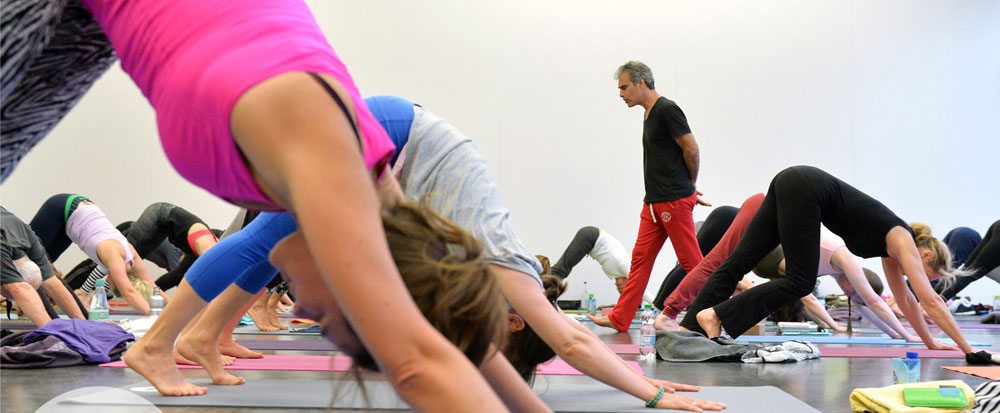How to Begin a Yoga Practice

When thinking about how to begin a yoga practice, it's important to note that it can be approached in different ways. One way to learn is of course to go to a beginners' yoga class, where you will be guided towards how to do yoga according to that school and most likely get a breakdown of yoga poses and maybe some philosophy.
This could be called a traditional approach and is certainly effective. Another way learn how to start yoga is to just start going to classes, absorbing more and more info every time you go, until one day you understand all that particular class offers. Most likely, your personal nature will dictate which is for you. Although my latter suggestion could be a disaster if the class you choose is not beginner-appropriate. IF this is the case, it should be stated that the class is not appropriate for beginners. A mixed level class would work, as the name implies all are welcome. However, another factor is the instructor and their ability to articulate and communicate the yoga exercises and philosophy in a beginner-appropriate manner, while still being able to engage the experienced participants who are also in the class. Also, the instructor would need to recognize the beginners and keep an eye out as they may need some extra attention above and beyond nicely articulated instructions. You could also have a hybrid of my two approaches listed above, attending beginners classes as well as mixed level classes simultaneously. Hopefully, the yoga lessons or classes are clear about the type of students that the class would be appropriate for and if not, the student should always be comfortable with approaching the instructor and asking.
How to Begin a Yoga Practice: Finding the Right Instructor & Class
Beginners to yoga should understand that learning yoga is a process, and finding the yoga classes and instructors that appeal to you might also be a process.
The instructor's personality seems to be a big factor in yoga classes, as yoga style and philosophy tend to get personalized before it's disseminated, which means the yoga is shared through the eyes of the instructor. Believe it or not, even an instructor's voice could be very attractive or off-putting. I have found in even those classes that are off-putting, there is the real possibility to learn something even if you would never go back to that particular class. So be patient in your exploration of styles and classes, and I'm sure eventually you will find what you're looking for.
Obviously you could also purchase a beginner's yoga book, as there are a myriad of options with titles like Yoga for Dummies or Yoga for Idiots etc. Let's not forget videos as well, as the online options are everywhere.
Rember, Yoga is a Science, Not a Religion
One more item I'd like you to chew on is this: Take responsibility for yourself. Don't blindly follow. Everything you learn should make sense and feel right to you!
Yoga is a science, not a religion. It needs to be understood, and a lot of instructors don't understand this, but make sure you do. You can't be guaranteed the instructor is not a fool, but that's not an issue if you're not blindly following and giving your power away. Very lastly, be gentle. With gentleness, you nullify the risk of injury. This is especially important for beginners, because there is a good chance you have not moved like this before, so you most likely don’t know how the body will respond to these movements (if you are doing poses), let alone where your boundaries are! Gentleness will prevent all injury. Gentleness also begs mindfulness which, is the necessary foundation if these poses are going to be healing and the beginning of meditation. Meditation being the next step as it is simply a deeper version of the poses.
I hope this has been informative.
Sincerely,
Bryan Kest
